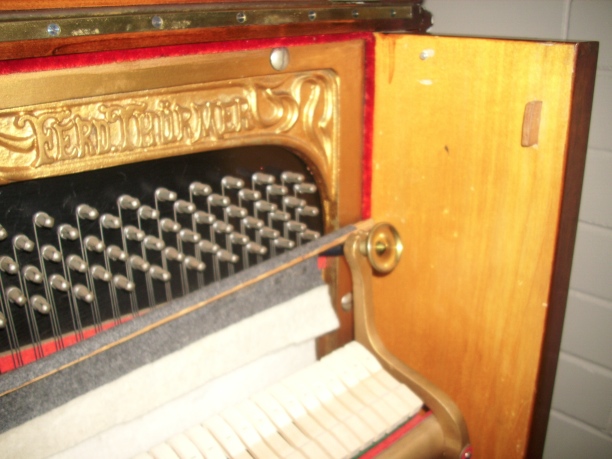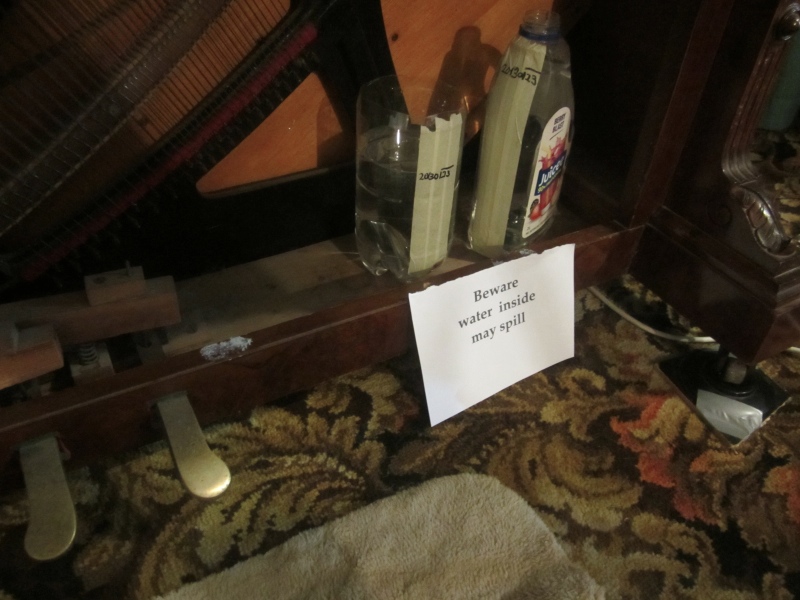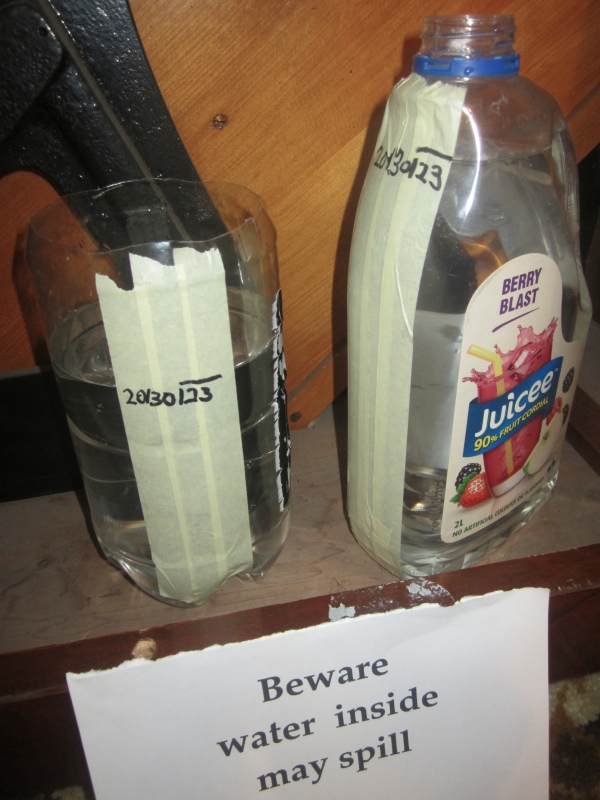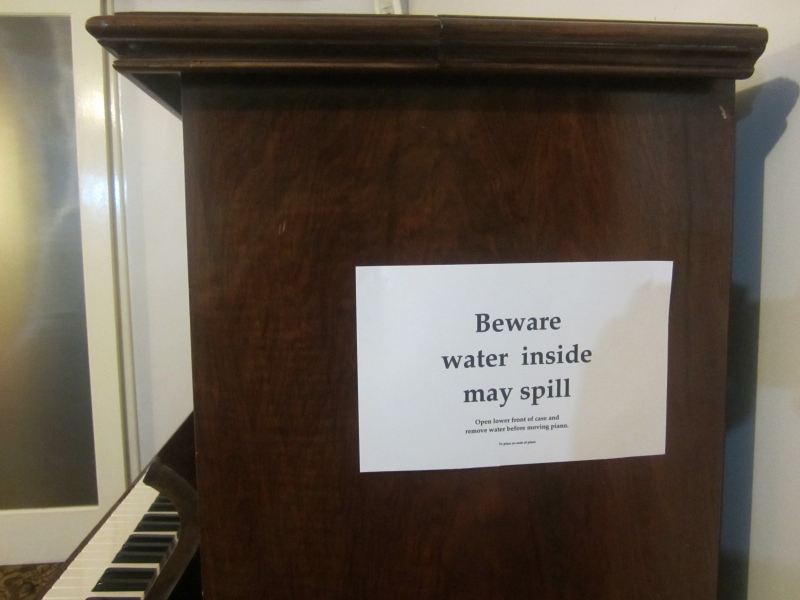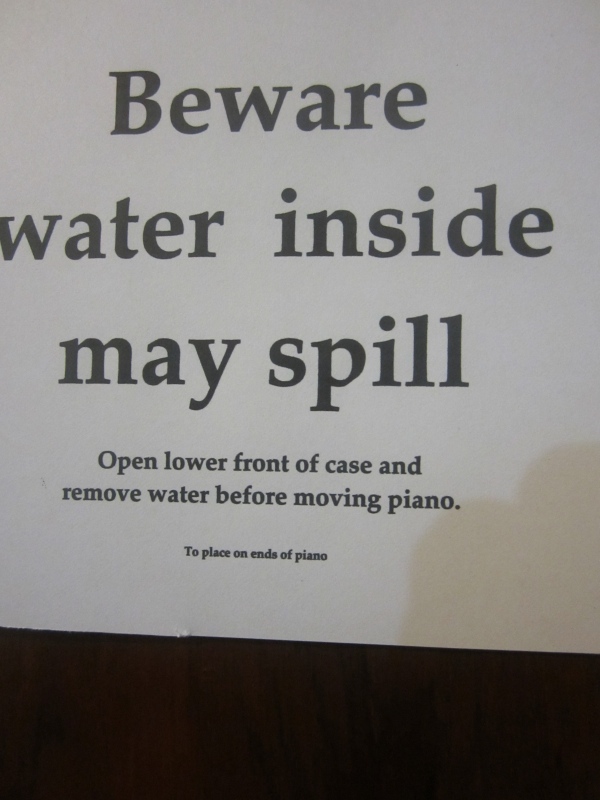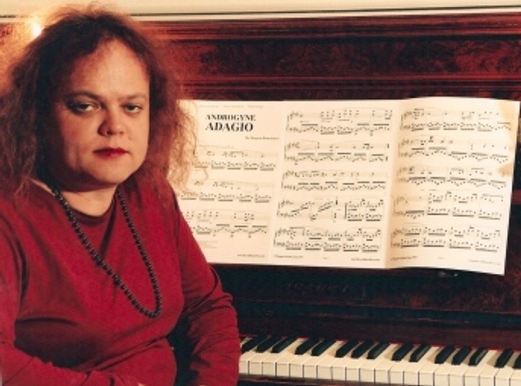
Online Piano Resources
Professional Services
All About Margaret
My sites
PIANO PAGES HOME
SINGING SITE HOME
RESOURCE REVIEWS HOME
Combined Entry Portal
Site List
Mix Margaret Dylan Jones
W.A. composer, pianist,
teacher, article writer, lyricist
Piano Hydration
to Maintain Tuning
PIano hydration beakers, placed inside your piano.
In almost all pianos (Beale pianos being the only exception I know of), the wrest plank (pin block, tuning block) is made of wood. The tuning pins are inserted into this plank, which runs across the top of your piano. Often the wood is hidden by thick paint or even a metal sheet.
If the wood becomes dry the pins become loose, resulting in the piano not holding pitch (i.e. it won't stay in tune or needs to be tuned flat).
Some sound advice from another site (www.pianoshowroom.com.au/content/japanese_used.html):
"Most manufacturers agree that the ideal humidity for a piano is between 50% and 70% and the ideal temperature for a piano is between 15 to 25 degrees Celcius."
"LOOK AFTER YOUR PIANO AND IT WILL LAST FOR MANY DECADES.
"Watch out for excessive humidity. Shield your piano from moisture. Avoid swings in humidity. Avoid excessive dryness.. Too little moisture is as equally harmful as too much." - KAWAI
Place the beaker at the bottom by removing the lower covering. All the removable parts of the case are designed to come away in seconds to allow piano tuners to get to work instantly. Under the keyboard you should see a small piece of wood, sometimes two of them, acting as a spring lock or a holding device. Simply push or rotate it to allow the big board to come away.
The 'Rolls Royce' solution to this problem is to install a humidifier / dehumidifier, at considerable cost (see links at the end). However, instead of that you can simply place a beaker of water inside your piano.
Because I thought I might not be seeing my Thürmer piano for a few months I put two beakers in it, one with a narrow opening so it will keep hydrating for a longer time.
If there is any possibility that someone may move your piano, even just a few centimetres, I suggest placing a warning sign on each end of the instrument it so they don't spill the water. You can access the text of this to print it here (opens in a new window).
To re-hydrate a particularly dry piano may take several weeks, so you should wait before tuning it.
Please note this remedy is a little controversial. Some believe you could cause serious damage to the piano but I have never found this to be the case. In fact, quite the contrary.
You can see the opposite advice from the piano tuner's association at www.aptta.org.au/faqs.aspx Here's a quote from that site:
"Q: My Grandmother always kept a bowl of water in her piano because "Australia is too hot". Is this recommended?Well, I beg to differ.
A: Definitely not! This is an old wives' tale and severe damage can result from the loosening of vital glue joints, not to mention rust and oxidation on metal parts, such as strings and springs. If you need to stabilize the climate for your piano, ask your ARPT tuner to recommend a device specifically designed for piano climate control (called a 'Humidifier/Dehumidifier'). These devices are relatively inexpensive (compared to the cost of your piano and the damage caused by excess moisture). NEVER use a bowl of water!"
Some more links about pianos & humidity:
A Piano Life Saver System from Dampp-Chaser Corp.Back to piano-paraphernalia.html or piano-information.html
www.lowes-pianos-and-organs.com/dampp.htm
www.pianolifesaver.com/english/home.php
Or contact Dampp-Chaser Corp. www.dampp-chaser.com/

Online Vocal Resources
Professional Services
All About Margaret
